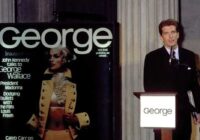Super Tuesday results on the Republican side show how little attention Americans pay to public policy.
The political discourse of shouting, speaking in platitudes, making vague and nebulous claims, blatant lies, misinformation and xenophobia has dominated the Republican side of this election cycle. Individually, none of this is new or unique in politics, but they are combined and accentuated to create the worst political discourse that I can remember. While it is easy to blame particular candidates, demographics or industries, the blame for the degradation of our national politics lies with we the people.
First, political campaigns react to nothing more strongly than polls, perception and donations. No political candidate could afford repetitious lying or unapologetic scapegoating if there were either financial or electoral consequences.
Relatedly, the ubiquitously vilified American media are largely, at the bottom line, private corporations that aim to turn profits. Contemporary coverage and narratives are more often driven by our desires than by civic duty. Our clicks and views tell outlets what stories will lead to greater ad revenue and bigger audiences.
Second, our understandable frustration with our economy, foreign policy and other issues has turned the American people against anyone with prior political experience. This is an erroneous approach.
By analogy, if an airplane crashes due to pilot error, no one would fire the pilots and hire accountants—instead, better pilots would be employed. Likewise, we should not replace our current politicians with surgeons, businessmen or preachers, but instead with better politicians. Indeed, when a plane crashes, hundreds can die in an instant, but when a country is led by misguided policies, thousands can die in needless violence, hunger or disease.
The aversion of the American people toward those with even a basic understanding of legislation and governance has decreased the political discourse among presidential candidates and will undoubtedly decrease how we are served by our government.
Finally, and perhaps most importantly, we have allowed ourselves to under-fund crucial programs in civics and humanities at both primary and secondary levels. By viewing education as merely a means to employment, teaching only performance on standardized tests, and obsessing over science and technology education, we habitually let our children down by ignoring coursework and lessons that instill citizenship.
Studying the humanities, for example, has been shown to increase empathy, a trait badly needed in our public discourse about immigrants, race and Muslims. Greater requirements and resources for courses in history, political science and government would create a more informed, more engaged and more diverse electorate than we have now.
More knowledgeable voters among all demographics and political persuasions would have a greater ability to discern fanciful promises from practical solutions, and have a greater understanding of the context and contents of our Constitution.
Too Late?
From school funding decisions to clicking sensationalist headlines, and from tolerating xenophobic statements to shunning policy nuance, we have built a political discourse that reflects the worst in us. Super Tuesday results on the Republican side show how little we collectively think about and pay attention to public policy.
But if we wish to change our politics, we must change ourselves. Thomas Jefferson tasked us to do so, famously writing: “An educated citizenry is a vital requisite for our survival as a free people.”
It may be too late to improve the tone of 2016, but by investing in civic knowledge and engagement, we can lay the groundwork for a better 2020 and beyond.
The views expressed in this article are the author’s own and do not necessarily reflect Fair Observer’s editorial policy.
Photo Credit: Joseph Sohm / Shutterstock.com
 We bring you perspectives from around the world. Help us to inform and educate. Your donation is tax-deductible. Join over 400 people to become a donor or you could choose to be a sponsor.
We bring you perspectives from around the world. Help us to inform and educate. Your donation is tax-deductible. Join over 400 people to become a donor or you could choose to be a sponsor.
Support Fair Observer
We rely on your support for our independence, diversity and quality.
For more than 10 years, Fair Observer has been free, fair and independent. No billionaire owns us, no advertisers control us. We are a reader-supported nonprofit. Unlike many other publications, we keep our content free for readers regardless of where they live or whether they can afford to pay. We have no paywalls and no ads.
In the post-truth era of fake news, echo chambers and filter bubbles, we publish a plurality of perspectives from around the world. Anyone can publish with us, but everyone goes through a rigorous editorial process. So, you get fact-checked, well-reasoned content instead of noise.
We publish 3,000+ voices from 90+ countries. We also conduct education and training programs
on subjects ranging from digital media and journalism to writing and critical thinking. This
doesn’t come cheap. Servers, editors, trainers and web developers cost
money.
Please consider supporting us on a regular basis as a recurring donor or a
sustaining member.
Will you support FO’s journalism?
We rely on your support for our independence, diversity and quality.








Commenting Guidelines
Please read our commenting guidelines before commenting.
1. Be Respectful: Please be polite to the author. Avoid hostility. The whole point of Fair Observer is openness to different perspectives from perspectives from around the world.
2. Comment Thoughtfully: Please be relevant and constructive. We do not allow personal attacks, disinformation or trolling. We will remove hate speech or incitement.
3. Contribute Usefully: Add something of value — a point of view, an argument, a personal experience or a relevant link if you are citing statistics and key facts.
Please agree to the guidelines before proceeding.